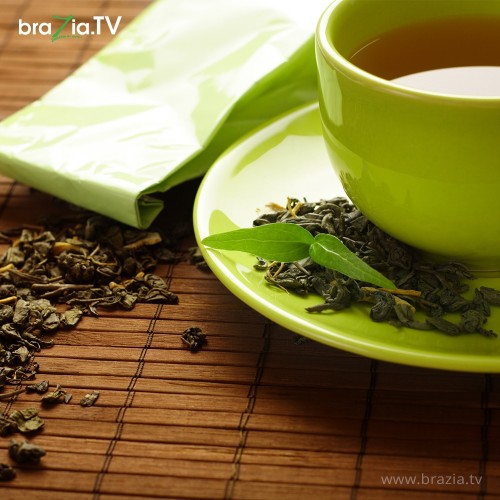As it has been already well known that
the polyphenols are originate in fresh, green tea leaves that might suggest protective effects beside convinced
cancers and play a positive role in weight loss management.
New research proposes that drinking five or more cups of green tea a day may decrease the incidence of psychological stress up to 20 percent. A study consisting of 42,093 Japanese populations and from that we found that 2,774 people which in percentage is approximately 6.6 % were victims of psychological stress.
According to the consequences of the study, a significant converse association between green tea utilization and psychological stress was practical for people who drank at least five cups of green tea a day, compared to those who drank one cup per day.

If you’re feeling particularly stressed out and wracked by nervousness and worries, you may find yourself physically more and more exhausted and struggling to lose weight.
Don’t presume its lack of strength of will and mind or an underactive thyroid. It could very well be any sort of fatigue. As the kidneys are your "life saving" organs that help to maintain water level in body because they control your body's hormones and help you stay alive in stressful situations.
But when the stress hormone, start mixing up in the body cells they become too high and your adrenal glands are continuously stressed, it sets off an autoimmune, inflammatory reaction in your entire body. This can lead to a whole host of difficulties and problems, from weight gain and complexity sleeping to foggy thinking, anxiety.
As ancient studies has already shown that green tea and its extracts can have a positive impact on our health. In fact, studies have statement that the extracts may also help prevent many other certain types of cancer. Also the green tea helps to improve cardiovascular and oral health as well as support with weight management. There had not been a large scale of the relationship study between green tea and psychological distress until at present.
After the researchers accustomed their consequences for a variety of factors such as age, sex, BMI, alcohol consumption, diet, cigarette smoking many times in a day, disease that is followed from genes to genes, and other variables, they originated a statistically important opposite to the relationship between the consumption of green tea and emotional stress for individual’s people who drank five cups a day or more then of green tea. This is in contrast to individuals who only had one cup or less each day.
Because the study was epidemiological in nature, the examiner could not present proof to propose the energetic constituents connected to the benefits. Further study will need to be completed to illuminate the bioactive and mechanisms in play.
A previous Japanese study concluded that this green tea may remove; in fact, help offset the variety of signs connected with demanding lives, including physical and mental fatigue.